Scientific Committee
The ESCAIDE Scientific Committee is composed of external experts in the field of infectious disease prevention and control and representatives of ECDC. They contribute to the development of the scientific programme of the conference through the proposal, coordination and moderation of the plenary sessions, overseeing the abstract selection process and advising on programme outlines. They also serve as advocates for ESCAIDE within their countries and networks. Members are appointed by the ECDC Director for rolling three-year periods. Detailed information on the operation of the Scientific Committee can be found in the Terms of Reference.

Piotr Kramarz
Piotr Kramarz is a physician, with a PhD in immunology of viral infections, and eight years of clinical practice at a teaching hospital in the field of infectious diseases. During the period 1997−2000, he worked at the US Centers for Disease Control and Prevention (CDC), first in the Epidemic Intelligence Service (EIS) and then as a medical epidemiologist. Since 2007, he has worked at ECDC as a Deputy Head of the Unit and, since 2024, as the Chief Scientist. His research interests include burden of communicable diseases and vaccine-preventable diseases.
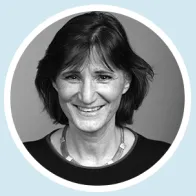
Jet (Henriette) de Valk
Jet (Henriette) de Valk is a medical doctor and infectious disease epidemiologist at the French national public health agency (Santé Publique France). As head of the Food-borne, Vector-borne and Zoonotic Infections Unit she is in charge of surveillance, outbreak investigations and applied research. She is actively involved in European networking activities for surveillance of infectious diseases, as a national representative in supranational surveillance networks, as a member of the coordination group of the Vector-borne and Emerging Diseases network of the European Centre for Disease Prevention and Control (ECDC) and as a supervisor in the European Programme for Intervention Epidemiology Training. She has recently been working on guidelines for surveillance of emerging arboviruses, on the disease burden of food-borne intestinal infectious diseases and on whole genome sequencing for surveillance. She serves on the national committee nominating the National Reference Centres (laboratories) for infectious agents in France and Belgium. Jet is a graduate of the University of Leyden in the Netherlands, the London School of Hygiene and Tropical Medicine in the United Kingdom and the Institute for Tropical Medicine in Antwerp, Belgium. She is also an alumnus of The European Programme for Intervention Epidemiology Training. Before working at Santé Publique France she worked for the NGO Médecins Sans Frontières (Doctors Without Borders) on emergency relief programmes in Sudan, Uganda and Mali, for the German Technical Cooperation (GTZ) in Cameroon and for the World Health Organization in Indonesia, where her focus was on control programmes for diarrhoeal and respiratory infections.
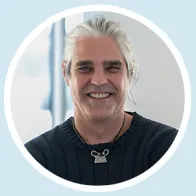
Jacobo Mendioroz Peña
Jacobo Mendioroz is a medical doctor (MD) specialising in preventive medicine and public health, with a masters in public health from Pompeu Fabra University. In 2020, he was designated by the Catalan government as director of the COVID-19 Response Unit for the Health Department of Catalonia. He is currently the Sub-Director for Surveillance and Response to Public Health Emergencies at the Public Health Agency of Catalonia. He began his career as a researcher in the epidemiology of congenital diseases for the Carlos III Health Institute (ISCIII) in Madrid. He also worked as field epidemiologist and researcher of tropical diseases in Angola as part of the International Health Programme (PROSICS) of the Catalan Health Institute (ICS). Working for the same institution, he also held positions at the Health Territorial Management Unit of Central Catalonia as head of Health Data Systems and as scientific coordinator of the Research Support Unit for primary healthcare professionals. As a researcher, he has studied the epidemiology of both transmissible and non-transmissible diseases and, in recent years, has focussed on medical information systems and the delivery of healthcare. During this time, he combined his research interests with providing technical support to health managers and working as an emergency room MD at hospitals and primary healthcare centres in Catalonia.

Ágnes Hajdu
Ágnes Hajdu is a medical doctor, specialising in preventive medicine and public health, and an EPIET alumna. For more than 15 years she has worked in the field of healthcare epidemiology and antimicrobial resistance (AMR). As a senior advisor in the Unit of Infection Control and Hospital Epidemiology at the National Public Health Center in Hungary, she has contributed to the development of national methodological guidance in infection prevention and control (IPC), coordination of surveillance modules on healthcare-associated infections, multidisciplinary investigations of nosocomial outbreaks, policy initiatives on IPC and AMR, and behavioural research on antimicrobial prescription in primary care. She is a member of the Hungarian National Infection Control and Antibiotic Committee. She has a longstanding collaboration with the European Centre for Disease Prevention and Control (ECDC) and the World Health Organization’s Regional Office for Europe (WHO/Europe) through various national functions.
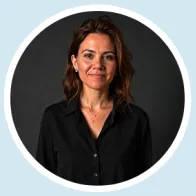
Angeliki Melidou
Angeliki Melidou is a virologist and has been an associate professor of molecular microbiology and virology at the Microbiology Department of the Aristotle University of Thessaloniki Medical School in Greece since 2012. She has been working at the European Centre for Disease Prevention and Control (ECDC) since 2016, and is currently a Principal Expert in Respiratory Viruses. Her expertise lies in the areas of microbiology, disease surveillance, and scientific advice related to respiratory viruses.
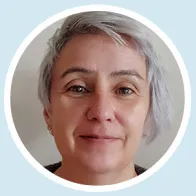
Alicia Barrasa
Alicia Barrasa is part of the EPIET Alumni Network which brings together more than 600 European field epidemiologists and public health microbiologists. She has a PhD and an MSc in public health and epidemiology. She has worked in the area of HIV, focussing on factors associated with disease progression, and as Scientific Coordinator for the Spanish field epidemiology training programme (2004−2008), and EPIET (2008−2020). She is currently working for the UK field epidemiology training programme. She was also a member of the TEPHINET Accreditation Working Group from 2019 to 2023.

Nadine Zeitlmann
Nadine Zeitlmann is a senior epidemiologist at the Robert Koch Institute (RKI) in Berlin, Germany and a part-time scientific coordinator for ECDC’s European Programme for Intervention Epidemiology Training (EPIET). She has a Masters in Public Health from the University of Munich and in Applied Epidemiology from the Berlin Charité. Between 2011 and 2013, she worked in the field of public health and infectious disease epidemiology in Denmark before completing her EPIET/PAE fellowship at the Bavarian Health and Food Safety Authority in Munich, Germany, 2013−2015. She then worked as an epidemiologist in different international programmes at the RKI for eight years where she supported partner countries in North Africa and the Balkan peninsula in building up surveillance, outbreak investigation and crisis management structures and implementing International Health Regulations (IHR). During this time, she was also deployed as an epidemiologist for various international assignments on the African and Asian continents. She also worked as a field epidemiologist in various COVID-19 outbreak investigations in Germany during the pandemic. In addition to her role as an EPIET Coordinator, she currently works as a coordinator in the field of epidemic intelligence, early warning and outbreak coordination in RKI’s ‘Unit for crisis management, outbreak investigation and training programmes’.

Miłosz Parczewski
Miłosz Parczewski graduated as an MD from the Pomeranian Medical University, Szczecin, Poland in 2002 and gained a PhD in the molecular epidemiology of HIV in 2007. In 2016, he became a professor of medicine based on his scientific publications on HIV resistance and transmission networks. Between 2017 and 2024, Miłosz was the President of the Polish Scientific AIDS Society, and is currently also a council member of the European Society on Antiviral Resistance and associate editor of the BMJ journal ‘Sexually Transmitted Infections (STI)’ and ‘HIV Medicine’ journal. He is currently Head of Department for Infectious, Tropical Diseases and Acquired Immunodeficiency at the Pomeranian Medical University, Szczecin, Poland and President of the European AIDS Clinical Society for the term 2025−2027 and the Polish National Consultant for Infectious Diseases, appointed in 2023. His research focuses on the molecular epidemiology of HIV infection and hepatitis C co-infection. He is author of multiple scientific publications in the field of HIV/AIDS, and an investigator in a number of clinical trials and cohorts, including EUROSIDA.
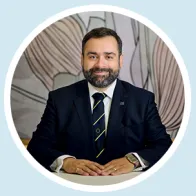
Carlos das Neves
Carlos das Neves has been EFSA’s Chief Scientist since 2022. Before joining EFSA, he was the Director of Research and Internationalisation at the Norwegian Veterinary Institute (NVI) and served as Head of Virology and Head of Food Safety & Emerging Threats at the NVI. Carlos is a veterinarian (DVM – Technical University of Lisbon) and holds a PhD in veterinary sciences (Norwegian School of Veterinary Sciences). He also has Postgraduate Certificates in Public Health from the London School of Hygiene and Tropical Medicine, and Public Policy Analysis from the London School of Economics and Political Science. In April 2024, he was appointed as a member and co-chair of the One Health High-Level Expert Panel (OHHLEP), the scientific and strategic advisory group to the Quadripartite organisations – Food and Agriculture Organisation, UN Environment Programme, World Health Organization and World Organisation for Animal Health.

Tyra Grove Krause
Tyra Grove Krause is the Executive Vice President for Epidemiological Infectious Disease Preparedness at Statens Serum Institut, Denmark, and a Professor of Infectious Disease Epidemiology at the University of Copenhagen. She is a specialist in public health medicine with a PhD in epidemiology. Her primary areas of expertise include infectious disease surveillance, epidemiological methods, outbreak investigation and control, and One Health implementation. For several years, she led the surveillance of influenza and other respiratory infections and played a key role in Denmark’s response to the COVID-19 pandemic, advising the Ministry of Health. She has been instrumental in developing and implementing the Danish Immunisation Information System and strengthening Denmark’s digital data infrastructure for infectious disease surveillance and research, leveraging the country's unique e-health registries.
Tyra Grove Krause is also a member of the Advisory Forum for the European Centre for Disease Prevention and Control (ECDC) and the Health Emergency Preparedness and Response Authority (HERA).

Bruno Ciancio
Bruno Ciancio is a medical epidemiologist and infectious disease specialist. After working as clinical researcher in Italy and completing his EPIET training in the UK, he joined the European Centre for Disease Prevention and Control (ECDC) in 2006. At ECDC he focussed on implementing EU strategies for increasing influenza vaccination coverage, including defining the scientific basis for vaccination strategies, the setting up of the I-MOVE network for monitoring vaccine effectiveness, and the strengthening of surveillance. Between 2011 and 2020 he focussed on establishing the mathematical modelling, GIS, and biostatistical functions of the Centre, supporting the issuing of more impactful scientific outputs, and coordinated the development of EpiPulse, the Atlas of Infectious Diseases, and the ECDC map maker tool (EMMa). Since 2020 he coordinates ECDC surveillance activities, including the implementation of strategies for harnessing new technologies, such as eHealth, molecular typing, and artificial intelligence, and the implementation of the new ECDC mandate. During the COVID-19 pandemic he worked as incident manager and coordinator of the surveillance team. Bruno Ciancio has authored about fifty scientific articles in peer-reviewed journals and a book chapter on influenza surveillance.
